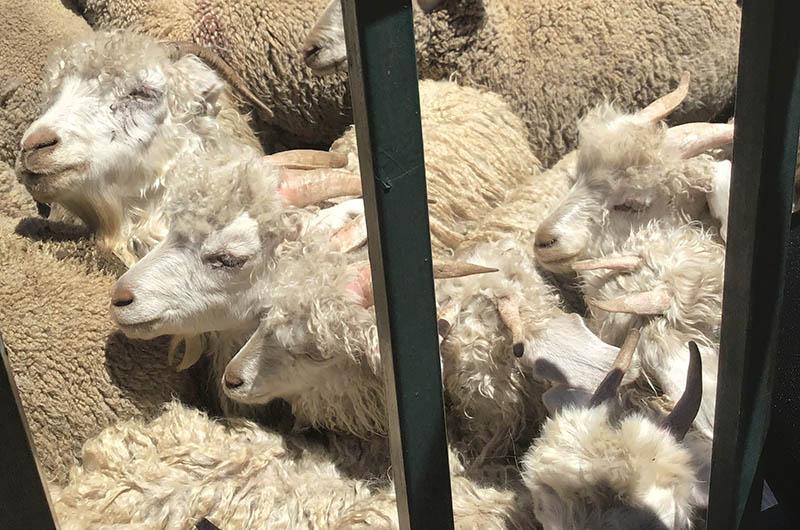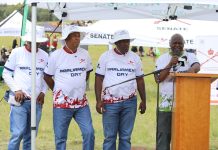Africa-Press – Lesotho. Wool and Mohair farmers who sold their produce through the Lesotho Wool Centre (LWC) in Thaba-Bosiu are concerned that due to delayed payments, they are now forced to either sell their livestock or slaughter them to subsist.
During a week’s excursion to the mountainous district over the past weekend, a Public Eye crew met a group of farmers in Bobete who were at a local shearing centre.
The farmers complained that because the LWC in Thaba-Bosiu has still not paid them for their last supply of wool and mohair, they are now forced to sell their sheep and goats at ridiculously low prices to make ends meet.
Public Eye has also learnt that none of the farmers from the Bobete area have received payment for the supply of both wool and mohair sent to the Thaba-Bosiu centre from as far back as May last year.
The farmers said while they opposed the implementation of the new Wool and Mohair regulations, they were left with no choice but to eventually send their produce to the centre, with the hope that they would get to understand the new regulations.
Under normal circumstances, they said they received their first payment as early as December while their last monies come through in January. “But since the centre in Thaba-Bosiu was opened, no payments have come through and we are now getting very worried,” one of the farmers, Mokati Lechamochamo said.
Lechamochamo, who is also a committee member at the local shearing shed, said they have been badly affected by the new regulations as payments take forever to come.
“Despite complying with the government’s directive, we still have not received any payments and our children have dropped out of school,” he said.
Government, through the ministry of small business development, released a statement a fortnight ago showing that there are over 40 000 recorded wool and mohair farmers in Lesotho, 13 000 of whom sold their produce at the Thaba-Bosiu centre.
The ministry also indicated that an average production is about 45,000 bales per year but only 18, 554 bales were received by LWC, suggesting that other farmers may have decided to withhold theirs or send it somewhere else against the new regulations.
Of the 18, 554 bales received by LWC, “7 900 bales have already sold for M183 million, an average of M23, 164.56 per bale,” the ministry further indicated.
It showed that M16 million has already been paid to some 1 740 famers, which means that a total of 11 260 farmers are still awaiting their payments. The centre held its first auction in November last year ending the long practice of selling the commodities outside the country.
LWC is a joint venture between Lesotho National Wool and Mohair Growers Association (LNWMGA) and Maseru Dawning established as part of the International Fund for Agricultural Development (IFAD) – supported Wool and Mohair promotion project.
The joint venture was established to increase farmer’s financial returns. Wool and Mohair Industry and the LWC came under the spotlight last year when government introduced new regulations designed to boost the industry.
Under the new regulations, which came into effect from September, farmers are obliged to sell their produce at LWC only. The new regulations were gazetted on May 4, 2018 to forbid anyone from trading in wool and mohair without a licence from the ministry of Small Business, Cooperatives and Marketing.
The regulations also stipulate that all the transactions should be done from Lesotho. Local Wool and Mohair growers under the banner of Lesotho National Wool and Mohair Growers Association opposed the implementation of the regulations which they said were meant to favour Chinese private businessman Stone Shi who manages the Centre.
Famers said the centre amounts to a monopoly. For more than 40 years prior to the government’s intervention last year, sales were previously conducted at Port-Elizabeth in South Africa through wool broker BKB.
For More News And Analysis About Lesotho Follow Africa-Press






